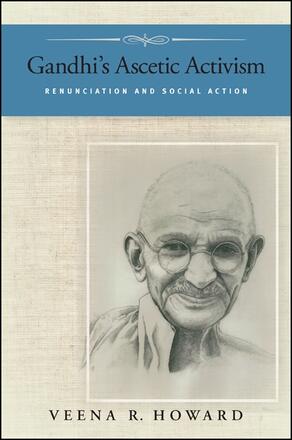
Gandhi's Ascetic Activism
Renunciation and Social Action
Alternative formats available from:
Discusses Gandhi’s creative use of ascetic practice, particularly his practice of celibacy, for nonviolent activism.
Description
More than six decades after his death, Mohandas Gandhi continues to inspire those who seek political and social liberation through nonviolent means. Uniquely, Gandhi placed celibacy and other renunciatory disciplines at the center of his nonviolent political strategy, conducting original experiments with their possibilities to gain practical, moral, and even miraculous powers for social change. Gandhi's abstinence in marriage, eccentric views on sexuality, and odd ways of including his female associates in his practices continue to cause ambivalence among scholars and students. Through a comprehensive study of Gandhi's own words, select Indian religious texts and myths that he used, and the historical and cultural context of his activism, Veena R. Howard shows how Gandhi's ascetic disciplines helped him mobilize millions. She explores Gandhi's creative use of renunciation in challenging established paradigms of confrontational politics, passive asceticism, and oppressive social customs. Howard's book sheds new light on the creative possibilities Gandhi discovered in combining personal renunciation, sacrifice, ritual, and myth for modern day social action.
Veena R. Howard teaches Religious Studies and Asian Studies at the University of Oregon.
Reviews
"…an impressive example of meticulous scholarship. Well written and well documented, it offers innovative interpretations that will both inform and challenge the views of most readers. It is an important contribution … Veena Howard has authored a very impressive study that deepens our knowledge of Gandhi. " — Philosophy East & West
"Based on a detailed and close reading of Gandhi's works, and considerable familiarity with Indian traditions, this book offers an informative and interesting account of the inner connections between his asceticism and nonviolent politics. " — Bhikhu Parekh, University of Westminster and the House of Lords
"Well grounded in the contemporary scholarship on Gandhi, Veena Howard wisely takes her primary clues from Gandhi's own claims about himself, read in accord with concepts central to Indian tradition. She brings out the substance and wisdom of his positions, without avoiding challenging questions about those ideals and practices. " — Francis X. Clooney, SJ, author of Comparative Theology: Deep Learning Across Religious Borders